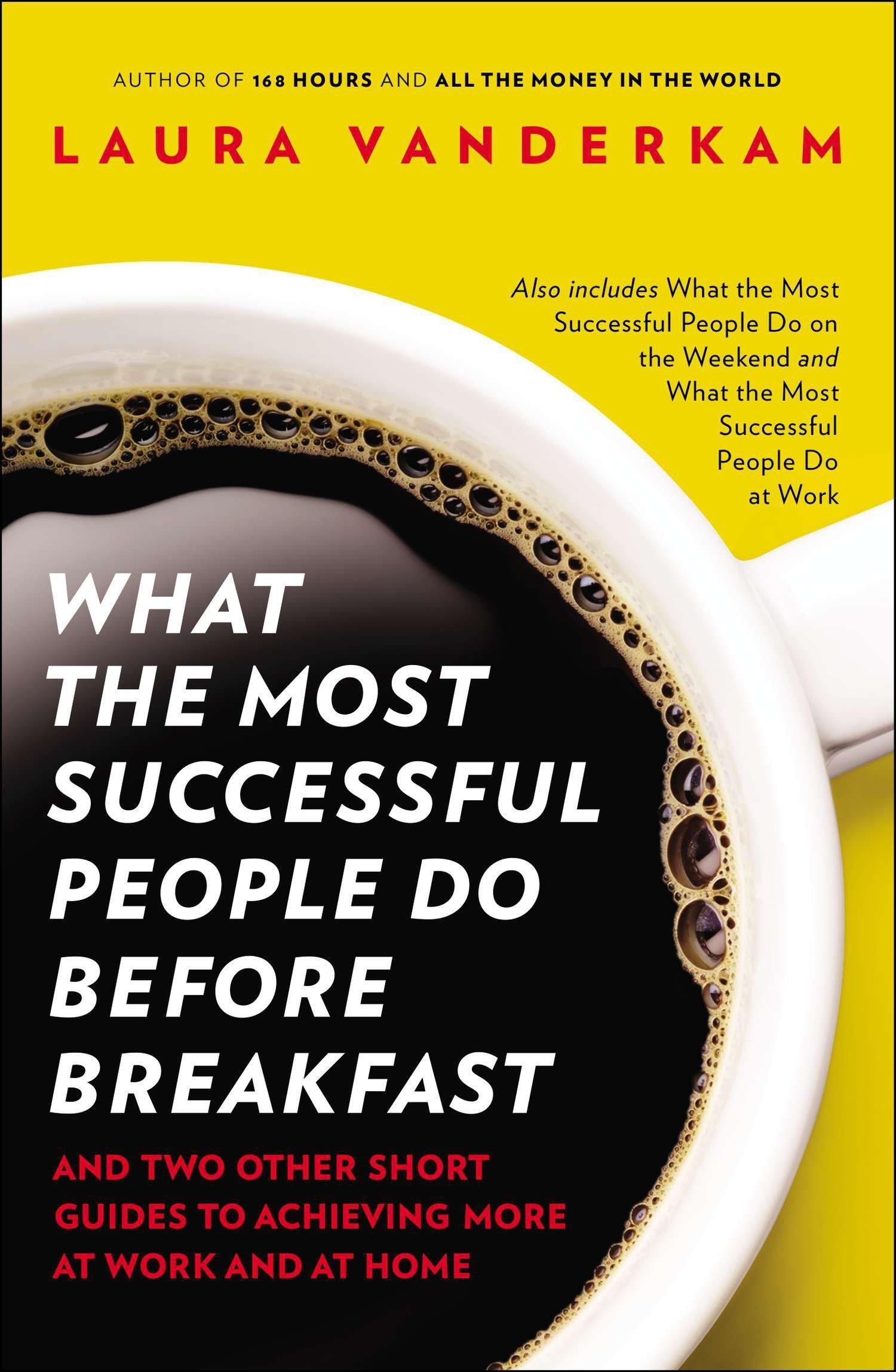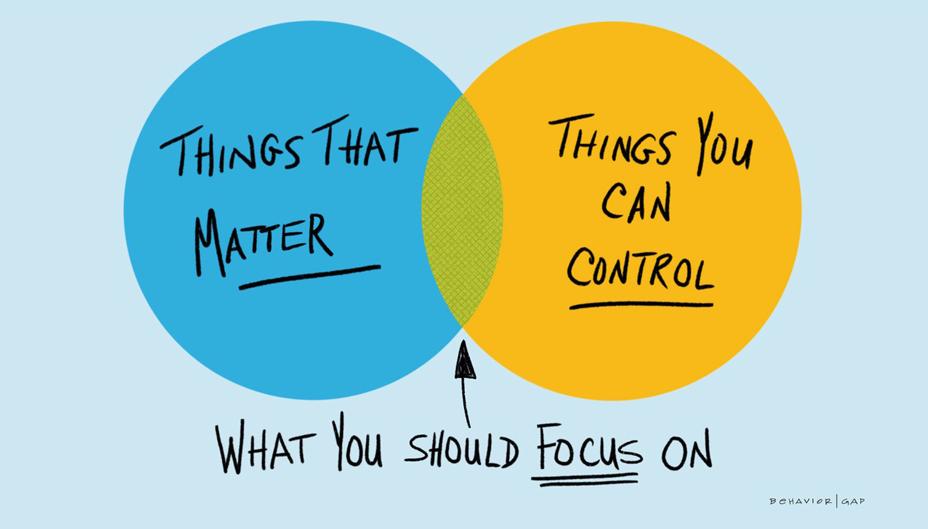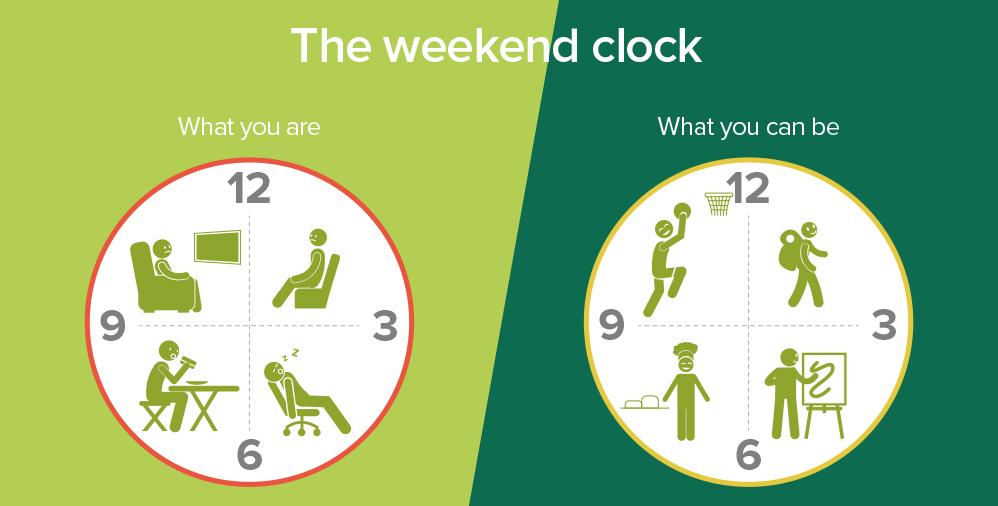Explore the World's Best Ideas
Join today and uncover 100+ curated journeys from 50+ topics. Unlock access to our mobile app with extensive features.
What the Most Successful People Do Before Breakfast
How do you spend your morning?
Did you know your morning routine can improve your productivity throughout the day?
What the Most Successful People Do Before Breakfast looks at how you can follow in the footsteps of successful people to maximize your day.
240
3.22K reads
“You don’t build the life you want by saving time. You build the life you want, and then time saves itself. Recognizing that is what makes success possible.”
— LAURA VANDERKAM
274
4.62K reads
1. Start Your Day With the Things That Matter Most to You
Mornings can be one of the most hectic times of the day. But, if you plan your mornings effectively, you can make sure you are using this time to focus on the things that matter most to you.
Instead of postponing essential tasks, schedule them for the start of your day.
You might feel another time would be better for this task, but daily pressures will often get in the way, and the task will be left undone. So, instead of postponing these critical tasks, you should fit them into the start of your day.
288
2.76K reads
2. Spend Your Morning Nurturing Your Career
Nurturing your work life is not about responding to emails as they land in your inbox. Instead, it is about attending activities that you rarely have enough time to do on your average day.
245
2.79K reads
Debbie Moysychyn is an organizational healthcare executive helping Brand University build its healthcare education department. She wanted to foster a collaborative, open-door culture in her office, so her colleagues could pop in for a chat whenever they wanted. This was effective in improving her colleagues’ efficiency. But, these short meetings reduced the time she had for her daily tasks.
226
2.23K reads
Outstanding tasks built up until she did not have enough time for the most critical projects. Debbie’s solution was to free up her mornings to get these tasks done. This allowed her to focus on the task at hand without the worry of continual interruption. She spent the rest of the day helping her colleagues and working on more significant projects.
225
1.87K reads
3. Spend Your Morning Nurturing Your Relationships with Others and Yourself
Relationships with Others
Careers are undoubtedly important. Yet, your relationships with others and yourself are more significant. It is easy to feel overwhelmed by your daily work. You might arrive home feeling too tired to spend quality time with your friends and family. The morning is the perfect time to engage with your family or to have some time to self-nurture.
236
1.71K reads
There are many ways that you can make the most of your morning, spanning various relationships:
- Have sex at dawn with your partner
- Make sure your whole family has breakfast around the table together
- Cook exciting lunches with your family that you will all eat later.
- Go on a morning walk in your local park with your partner or family.
233
1.89K reads
Kathryn Beaumont Murphy exemplifies how mornings can support your relationship with others. Kathryn is a busy tax lawyer with a stacked schedule involving many late nights. These late nights prevented her from spending enough quality time with her daughter, as the law firm rewarded late hours rather than early starts. So, the mornings were generally quiet.
223
1.53K reads
Kathryn decided to start going to bed earlier to add a couple of hours to her day in the morning. She would replace these hours at night with a few hours in the morning. This allowed her to spend quality time with her family. This decision has rubbed off on her family. They now all rise early and try to ensure breakfast is a special time for them.
227
1.34K reads
“Before the rest of the world is eating breakfast, the most successful people have already scored daily victories that are advancing them toward the lives they want.”
— LAURA VANDERKAM
260
2.1K reads
Relationship with Yourself
Self-care is the third pillar for a more balanced life. It is arguably the first thing we sacrifice when life gets too busy. Again, the morning offers a fantastic opportunity to free up time for self-nurture.
245
1.55K reads
4. Track Your Time and Imagine Your Ideal Morning
It is also essential to ask yourself how you can start implementing a morning routine. There are two steps to follow to make this easier.
You can start making your morning more productive by tracking the time you spend on specific tasks over the week. A week consists of 168 hours. Although this might seem like a lot, this time can waste away if you do not understand where that time is going. This is where time management becomes so important. The problem with time management is it is rarely about how you spend your mornings. Instead, it is about what you do with the rest of your day.
239
957 reads
One act that can have a detrimental effect on your morning is your bedtime. Late nights can prevent you from waking up early. Additionally, they can also leave you feeling unproductive when you do wake up early. A good night’s sleep is integral to the efficiency of your morning routine.
It is easy to fall into the trap of staying up late. For example, you could watch TV and lose track of time or remember a task you forgot to do that day. But burning the candle at both ends isn’t a sustainable approach. Staying up late to finish a job you forgot about will only reduce tomorrow’s efficiency.
235
955 reads
Tracking your time allows you to identify which tasks keep you up late. Are these tasks essential, or can you fit them in earlier in the day? You can free up an hour or two early in the day once you understand where your time is going. Use a notebook to identify areas where you can save time. Freeing up time will ensure you get a good night’s sleep and have a couple of hours for your ideal morning.
232
871 reads
5. Take Your Time Adopting New Habits
Logistics
Logistics is the third step in integrating an effective morning routine. You need to calculate whether your ideal morning routine is viable. Identify how much time you need to incorporate all your ideal morning activities. Include potential areas where you can accommodate your new plans. You should also note small changes you can make to aid your morning routine.
233
852 reads
For example, say you have decided to start going on a 30-minute run every morning. You worry you won’t fit this in with your current morning schedule. In this instance, you could reduce the amount of time you spend in the shower. Then use some of this time for your daily morning run.
Mapping out your ideal morning and timings is vital for success. Forewarned is forearmed.
231
855 reads
Creating Your New Habits
Creating new habits is not a quick process. It will take time to cement your new habits and integrate them into your daily routine. You should start slowly and be patient with yourself and your new habits. Some habits will be easier to integrate, while others might take you weeks or even months. The end of your first two weeks of integrating a habit will be your crunch time. This is often when individuals decide to give up on a new habit. You have to persevere. Do not take a day off, and do not slack when things take longer than you first thought.
234
703 reads
Do not take on too many new habits at once. Doing so should help keep your motivation high enough to get through a rough patch. If you set out to build several habits at once, you will struggle with the challenging moments.
Rewards, or bribes, are also helpful for motivating yourself to persist with habits. The author calls these rewards ’bribes.’ Sticking to your habits is a behavior that deserves a reward, and doing so will reinforce this good behavior. You should treat yourself if you have maintained a habit for a few weeks.
229
674 reads
6. Pre-Plan weekend activities
“You need to hit Monday ready to go... To do that, you need weekends that rejuvenate you, rather than exhaust or disappoint you.” — Laura Vanderkam.
242
994 reads
Weekends are the perfect time to recharge your mental & physical batteries. But, it's too easy to let the weekend pass you by. For example, it is not uncommon for Monday to catch up with you before you have had a chance to relax. You end up being more tired on Monday than you were after work on Friday. To overcome this, you need to plan. Instead of spontaneously deciding what you will do on Saturday morning, you should create a list of 3-5 anchor activities for the day. Plan these a few days in advance. Planning these activities will keep you on track so you don’t end up wasting your weekend.
233
677 reads
That doesn’t mean you need to fill every minute of your weekend with activities. Instead, having a few anchor activities will help keep you on track, while also allowing for a refresh. These anchor activities should consist of some out-of-the-ordinary activities. These exciting activities will help instill a sense of anticipation during the week. You can use this anticipation as motivational energy. Use it to keep you on track with your ideal morning routines.
231
659 reads
7. Keep Track of How You Spend Your Time at Work
People tend to overestimate the time they spend doing things they don’t like. In comparison, they underestimate the time they spend doing things they do like. Hence, people often claim they have worked a 60-hour week when they have only worked 40 hours. You should keep a log of all the time you have spent working, tidying, and completing other tasks. Creating a spreadsheet or using one of the many relevant apps can help.
231
700 reads
8. Plan for Success
Laying the groundwork for success relies on carefully choosing your priorities for the day ahead. You should aim to do this every day. You should set up an accountability system that won’t let you down.
Setting yourself challenging goals can be useful, but setting the bar too high will generally mean you fall short. Additionally, you can’t achieve these lofty goals daily. Instead, you should aim to hit targets every day. Adopting this approach allows you to reach your goals.
228
607 reads
To obtain your goals, it is vital to develop accountability. You should find someone who shares your goals and can check in to let you know whether you have met your targets. This is your ‘accountability partner.’
Finally, cut out tasks that feel like work but don’t achieve anything. Cutting out these tasks will remove distractions from your most significant tasks.
228
688 reads
“Successful people know that small things done repeatedly have great power.”
— LAURA VANDERKAM.
245
962 reads
Five common truths are essential for success:
- Deliberate practice makes perfect.
- Seek constructive criticism.
- Keep a deposit of career capital for future opportunities. Career capital is everything you have earned during your work life. This includes experience, networks, skills, and professional personality. You can use this capital to ask for things like promotions.
- Nurture your relationships and establish trust.
- Happiness leads to professional breakthroughs. Be more attentive to signs of success so that you can be happier.
242
893 reads
IDEAS CURATED BY
CURATOR'S NOTE
In What the Most Successful People Do Before Breakfast Vanderkam suggests making over your mornings by tracking your time, picturing the perfect morning, thinking through the logistics, building a habit, developing a feedback loop, and tuning up as necessary... Have a read
“
K 's ideas are part of this journey:
Learn more about personaldevelopment with this collection
The importance of practice and repetition in learning
How to stay motivated and avoid burnout while learning
How to break down complex concepts into manageable parts
Related collections
Different Perspectives Curated by Others from What the Most Successful People Do Before Breakfast
Curious about different takes? Check out our book page to explore multiple unique summaries written by Deepstash curators:
7 ideas
Discover Key Ideas from Books on Similar Topics
18 ideas
Mini Habits
Stephen Guise
9 ideas
Mini Habits
Stephen Guise
15 ideas
Who Not How
Dan Sullivan, Dr. Benjamin Hardy
Read & Learn
20x Faster
without
deepstash
with
deepstash
with
deepstash
Personalized microlearning
—
100+ Learning Journeys
—
Access to 200,000+ ideas
—
Access to the mobile app
—
Unlimited idea saving
—
—
Unlimited history
—
—
Unlimited listening to ideas
—
—
Downloading & offline access
—
—
Supercharge your mind with one idea per day
Enter your email and spend 1 minute every day to learn something new.
I agree to receive email updates










